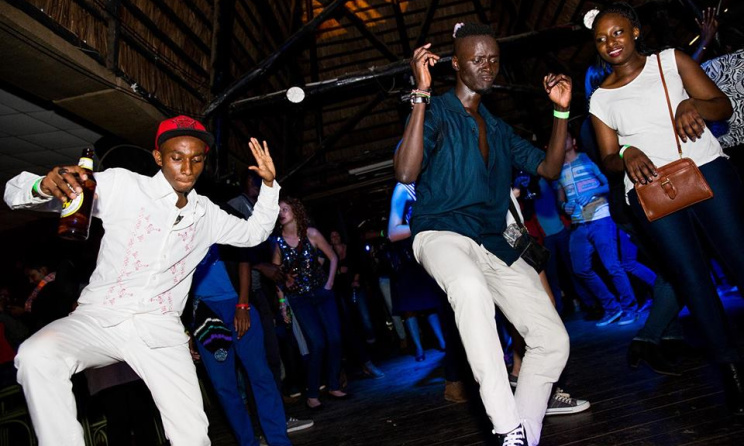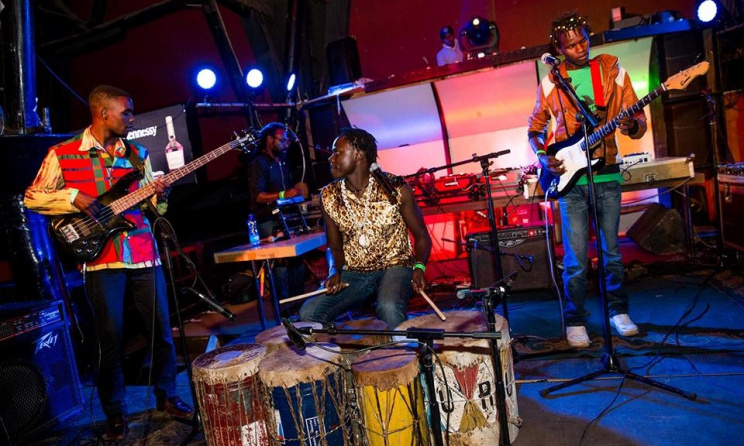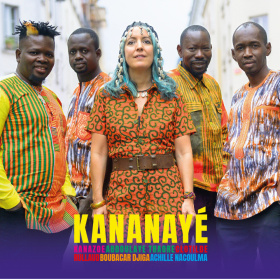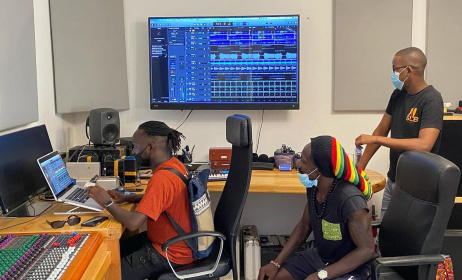Are East African DJs doing enough to promote regional music?
Music trends often evolve largely due to the creativity of the DJs. For example, reggaeton's current popularity is largely a product of DJs' tastes, according to music pundits. But for Kenya and the larger East Africa, disc jockeys are seen to not be doing enough to develop the local music of the region.
 Revelers at a concert in Nairobi. Photos:Quaint Photography
Revelers at a concert in Nairobi. Photos:Quaint Photography Band performance. Photo: www.juiced.today
Band performance. Photo: www.juiced.today
At the start of August, one of Kenya’s best-known DJs, DJ Izrael, who had been contracted by the Music Copyright Society of Kenya (MCSK) was dismissed on grounds of soliciting for pay before playing artists music on radio and various TV stations. It's not only DJ Izrael who has found himself at loggerheads with artists as well as stakeholders in the music industry. In March 2015 at the Airtel Trace Star Music competition finals that hosted Akon and many other international music industry experts, DJ Joe Mfalme was heavily criticized for playing works by international artists over Kenyan ones.
The dominance of international works in the Kenyan audio and broadcast media is clearly evidenced by the August 2015 royalty payments by MCSK, that saw Tanzanian artist Diamond Platinumz get the highest pay of Ksh 352 000 (approximately US$3500). On 10 August artists in the Kenyan capital took to the streets to demand that both Radio and TV should be forced to raise the airing of local content up to 70% from the current 60%.
It is not only in Kenya that there is dissatisfaction by general publics and artists with DJs. In Uganda, for example, irked by the dominance of Nigerian and other international music in Ugandan clubs, one concerned citizen named Sam Yiga wrote an open letter in 2014 to Ugandan DJs questioning their attitude towards the local music. He wondered whether there was no local music to be played in clubs or whether it is a deliberate choice by the DJs. While a few agreed with him, the general feeling was that the letter ought to have been addressed to the crowds that throng the entertainment venues as opposed to the DJs who typically only play what the crowds request.
Gordon Omondi, a Kenyan reacting to the same letter, noted that DJs in clubs play what is popular. This is what they are paid to do and not promote local artist. "DJs at Club Venom in Uganda for example have had Konshens, Davido, Diamond Platinumz and Jamaican artist Nyanda constantly on play - why is it so? How many meet-and-greets have been done for Ugandan artists? We experience the same issues in Kenya,” Gordon wrote in response to the letter by Sam Yiga.
For others, however, the issue at hand is the pay that DJs take home. Their feeling is that if promoters and venue managers pay DJs poorly, then they will get incompetent DJs with poor skills. Many venues are struggling because of this. One concerned Ugandan observed that most clubs and bars in his country pay low fees to DJs who are expected to play all night long. There is a general feeling that clubs should up their game and pay DJs the same fees that they give artists, who typically only perform short 15- to 30-minute sets.
Others feel that it is all about the quality of music that artists are releasing. Quality is key, another Uganda, Reno Kabachelor, remarked in 2014 in response to the letter by Yiga. "There was a time when Ugandan music was great and DJs actually played it. However as time passed we failed to maintain the game. Lack of creativity is the reason we have opted to listen to Naija, kwaito and western music. Don’t blame the DJs, tell the musicians to go to the drawing board and become a little more creative,” Reno observed.
But DJs in Kenya seem to be feeling the heat with the numerous challenges they face. In Kenya for instance a new outfit, the Association of DJs East Africa, has been formed and since June 2015 has been working on putting systems in place to protect the welfare of its members. The most pressing concern amongst members, especially for Kenyan DJs, has been the continued attack on DJs by collective management organizations (CMOs) and the National Environment Management Authority (NEMA). As such, the association is at the forefront in making sure that members are fully briefed on what their responsibilities are before committing to perform in venues across Kenya. One DJ is reportedly creating a database through which members can register and communicate effectively with other members.
Following recent protests by Kenyan artists, the controversial Kenyan Music Policy that has undergone several drafts was launched in the Kenyan capital. It is hoped that this will work to the benefit of artists in the country as well as develop the local industry.






























Commentaires
s'identifier or register to post comments